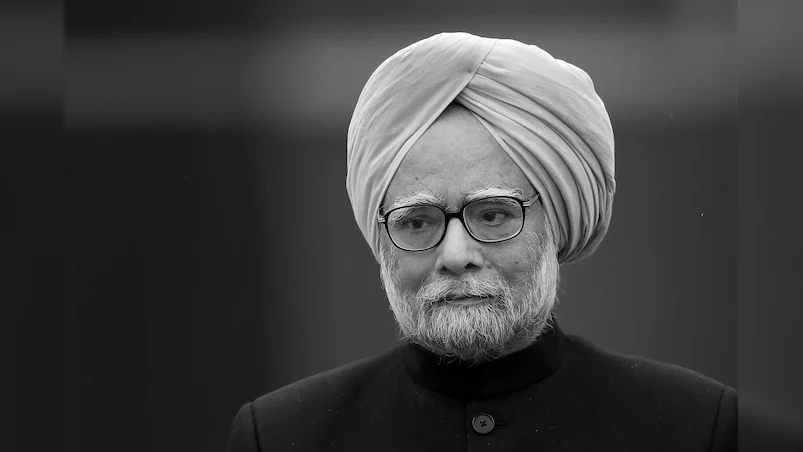Former Prime Minister Manmohan Singh’s body has been brought to his residence in New Delhi for the public to pay their last respects, following his death on Thursday night. The 92-year-old passed away at AIIMS, Delhi, after being rushed to the hospital in critical condition. His death has left the country in mourning, with political leaders, business figures, and the public expressing their sorrow.
Details of Public Viewing and Last Rites
Manmohan Singh’s body was embalmed at AIIMS and transported to his residence, where the public can pay tribute. Congress leader Sandeep Dikshit provided an update on Friday, confirming that the schedule for public viewing has yet to be finalized. He mentioned that the timing of the public viewing would depend on the arrival of Singh’s daughter, who is traveling from abroad.
Dikshit stated, “The schedule is still pending. His daughter is traveling from abroad and is expected to arrive in the afternoon or evening. Once she is here, the arrangements will be made. The last rites could happen tomorrow.” He added that public viewing might begin after 10 am, and some delays had occurred due to rain.
Tributes Pour In from Across the Nation
Leaders and public figures from across India have expressed their condolences, highlighting Singh’s immense contributions to the country. Prime Minister Narendra Modi shared a post on X, stating, “India mourns the loss of one of its most distinguished leaders, Dr. Manmohan Singh Ji.” He praised Singh’s journey from humble beginnings to becoming a respected economist and the lasting impact he had on India’s economic policy during his tenure as Finance Minister and Prime Minister.
Other leaders, including President Droupadi Murmu, Vice President Jagdeep Dhankhar, and Congress leaders Rahul Gandhi and Priyanka Gandhi Vadra, also expressed their grief and praised Singh’s work, particularly his role in India’s economic reforms. Business figures such as Gautam Adani and Harsh Goenka paid their respects, acknowledging Singh’s instrumental role in India’s economic liberalization.
Manmohan Singh’s Legacy: The Architect of Economic Reforms
Manmohan Singh is widely regarded as the architect of India’s economic reforms. In 1991, when he took charge of the finance ministry, India was grappling with a severe economic crisis. The country faced an unsustainable fiscal deficit, a large balance of payments deficit, and minimal foreign reserves. Singh’s bold economic policies, introduced in the 1991-92 Union Budget, paved the way for a new economic era.
His reforms included the abolition of the license raj and the opening of sectors to private and foreign players, which brought much-needed capital into the country. Singh’s leadership as Prime Minister from 2004 to 2014 further solidified his legacy as a key architect of India’s modern economy.
As the nation mourns the loss of one of its most influential leaders, Manmohan Singh’s legacy continues to be a touchstone for India’s economic growth and global standing. The tributes and the public’s outpouring of respect reflect the immense impact Singh had, not only as a leader but also as an economist who reshaped India’s economic future.




